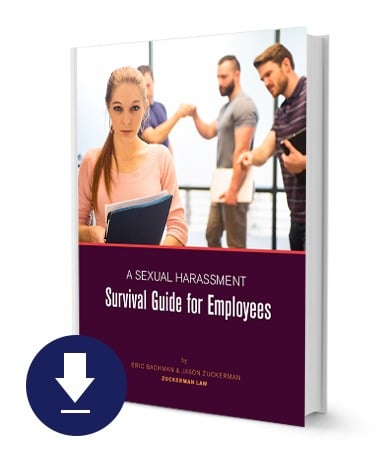
Sexual Harassment and Gender Discrimination in Banking and Financial Services
The male-dominated, fiercely competitive culture of Wall Street and the financial services sector has long been rampant with egregious sex harassment and gender discrimination. Indeed, some of the largest recoveries in discrimination and harassment cases occurred in the banking industry. Although progress has been made, there is still a glass ceiling at too many financial services firms that denies promotional opportunities to women and minorities:
- A recent internal Citigroup pay equity review found that median pay for women is 29 percent less than it is for men at the bank.
- And a recent InvestmentNews survey found that nearly 80% of financial advisers believe that sexual harassment is a problem in the financial advice industry.
Banking and Financial Services Sex Harassment and Discrimination Attorneys
Our seasoned employment lawyers have represented employees in the financial services industry in high-stakes employment disputes, including employees at JP Morgan Chase, Goldman Sachs, Wells Fargo, Bank of America, Deutsche Bank, HSBC, and other financial institutions. We understand the substantial damage that discrimination and retaliation can inflict on your career and how difficult it is to regain your reputation and rebuild your career.
Discrimination or retaliation can detail a career and cause a massive loss of future earnings. We endeavor to achieve the maximum damages for our clients and are prepared to go the distance to obtain maximum relief and hold the perpetrator accountable.
U.S. News and Best Lawyers® have named Zuckerman Law a Tier 1 firm in Litigation – Labor and Employment in the Washington DC metropolitan area. Contact us today to find out how we can help you.
To schedule a confidential consultation, call us today at 202-262-8959, or click here.

Client Reviews of Sex Harassment Lawyer Jason Zuckerman
We are proud of our commitment to exceptional client service, including our prompt response to client inquiries and zealous advocacy. Recently Avvo awarded Jason Zuckerman its Client Choice Award based on client reviews. The following two reviews were provided by former clients of Jason Zuckerman concerning sexual harassment matters:
“I truly can’t say enough good things about Jason and his team – they are incredibly effective, professional, and consistently wonderful to work with, even in very high-pressure circumstances. Jason and his colleagues were exceptionally patient with and responsive to my concerns, consulting with me on every step of the process and explaining different options. Beyond their impeccable legal representation and client advocacy, I also felt personally cared for and supported during what was a particularly nightmarish experience of workplace harassment. When needed, they also devoted significant extra time and effort to my case to ensure that my interests were protected. I am incredibly grateful for their representation and wholeheartedly recommend Zuckerman Law to anyone seeking justice in employment-related matters.”
“When I sought out a DC-based attorney to represent me, I expected a competent attorney who would get me through my sexual harassment lawsuit. What I didn’t expect was to find someone like Jason: a truly outstanding attorney who made me feel like a priority, paid close attention to detail, and brought enormous expertise to the table. I chose to hire Jason to represent me after consulting seven other lawyers — and from day one, Jason was the only one who it clear that he actually cared about me and my case. I cannot be happier that I chose Jason. He represented me with professionalism and fearlessness every step of the way. Jason always made me feel like a priority, even though he was busy with other cases/clients simultaneously. He never rushed me or pressured me, and kept me “in the loop” the entire time while we were dealing with the opposing side.”
See more reviews here.







